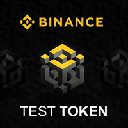-
 Bitcoin
Bitcoin $96,359.5529
0.20% -
 Ethereum
Ethereum $2,812.8874
4.58% -
 XRP
XRP $2.5892
0.71% -
 Tether USDt
Tether USDt $1.0002
0.03% -
 BNB
BNB $664.6300
1.32% -
 Solana
Solana $172.0998
0.08% -
 USDC
USDC $1.0002
0.02% -
 Dogecoin
Dogecoin $0.2466
1.37% -
 Cardano
Cardano $0.7828
2.86% -
 TRON
TRON $0.2422
1.86% -
 Chainlink
Chainlink $18.0261
3.32% -
 Avalanche
Avalanche $25.6599
2.87% -
 Sui
Sui $3.4049
2.24% -
 Stellar
Stellar $0.3353
2.65% -
 Litecoin
Litecoin $127.3333
0.12% -
 Toncoin
Toncoin $3.7792
3.29% -
 Shiba Inu
Shiba Inu $0.0...01572
2.89% -
 Hedera
Hedera $0.2153
0.64% -
 UNUS SED LEO
UNUS SED LEO $9.7397
0.13% -
 MANTRA
MANTRA $8.6824
13.45% -
 Hyperliquid
Hyperliquid $24.2831
0.06% -
 Polkadot
Polkadot $5.1038
0.36% -
 Bitcoin Cash
Bitcoin Cash $331.4356
4.51% -
 Bitget Token
Bitget Token $5.0698
1.38% -
 Ethena USDe
Ethena USDe $0.9998
0.10% -
 Uniswap
Uniswap $9.1583
4.12% -
 Dai
Dai $1.0001
0.01% -
 Monero
Monero $236.2980
1.35% -
 NEAR Protocol
NEAR Protocol $3.4734
0.18% -
 Pepe
Pepe $0.0...09665
3.94%
What is DeFi (decentralized finance)? How does it work?
Decentralized finance (DeFi), built on blockchain technology, disrupts traditional finance by eliminating intermediaries like banks, enabling peer-to-peer financial transactions.
Jan 23, 2025 at 10:25 am

Key Points
- DeFi is a decentralized financial system that operates on a blockchain network, eliminating the need for intermediaries like banks.
- DeFi protocols enable users to borrow, lend, trade, and manage their assets without relying on traditional financial institutions.
- Smart contracts automate transactions and enforce the terms of agreements, ensuring transparency and security.
- DeFi offers advantages such as increased accessibility, reduced fees, and the potential for higher returns on investments.
What is DeFi (Decentralized Finance)
Decentralized finance (DeFi) is a transformative financial ecosystem built on blockchain technology that disintermediates traditional financial services. It empowers individuals to engage in financial activities peer-to-peer, eliminating the need for centralized institutions like banks.
Unlike traditional finance, which relies on intermediaries to facilitate transactions, DeFi operates on a decentralized network where participants interact directly with each other. This fundamental shift removes the barriers and inefficiencies associated with legacy financial systems.
How DeFi Works
DeFi leverages three key elements:
- Blockchain Technology: DeFi protocols are built on blockchain networks, which provide a secure and transparent foundation for financial transactions. Blockchain ensures the integrity and immutability of data, preventing fraud and manipulation.
- Smart Contracts: Smart contracts are self-executing programs that automate the terms of agreements. They govern interactions between parties, ensuring that transactions occur as per the predefined rules without any human intervention.
- Cryptocurrency: Cryptocurrencies serve as the medium of exchange and store of value within DeFi protocols. They enable seamless transfer of funds and facilitate participation in various financial activities.
Benefits of DeFi
DeFi offers numerous benefits that traditional finance cannot match:
- Accessibility: DeFi opens up financial services to anyone with an internet connection, regardless of their location or financial status.
- Low Fees: DeFi platforms typically charge significantly lower fees compared to traditional financial institutions, as they eliminate intermediaries and automate processes.
- Potential for Higher Returns: DeFi instruments, such as decentralized exchanges (DEXs) and liquidity pools, provide opportunities for higher returns on investments compared to traditional savings accounts or bonds.
- Transparency: DeFi transactions are recorded on the blockchain, making them transparent and auditable. This promotes accountability and reduces the risk of fraudulent activities.
- Reduced Counterparty Risk: In DeFi, transactions occur directly between participants, eliminating the reliance on third parties and minimizing the risk of default or fraud.
- Programmability: DeFi protocols are programmable, allowing developers to create custom financial instruments and applications that cater to specific needs and preferences.
FAQs
1. What are some popular DeFi protocols?
- Uniswap
- Compound
- Aave
- MakerDAO
- Curve Finance
2. What are the risks associated with DeFi?
- Smart contract bugs
- Market volatility
- Counterparty risks
- Phishing attacks
- Regulatory uncertainty
3. Is DeFi regulated?
The regulatory landscape for DeFi is evolving rapidly. While some jurisdictions are working on developing regulations for the industry, others have yet to establish a clear framework.
4. Is DeFi a threat to traditional finance?
DeFi has the potential to disrupt traditional financial institutions by providing more efficient and accessible alternatives. However, it is unlikely to completely replace traditional finance in the near future.
5. What is the future of DeFi?
DeFi is still in its early stages of development, but it has the potential to transform the financial industry by increasing accessibility, reducing costs, and providing innovative financial products. As technology and adoption continue to evolve, DeFi is poised to play a significant role in shaping the future of finance.
Disclaimer:info@kdj.com
The information provided is not trading advice. kdj.com does not assume any responsibility for any investments made based on the information provided in this article. Cryptocurrencies are highly volatile and it is highly recommended that you invest with caution after thorough research!
If you believe that the content used on this website infringes your copyright, please contact us immediately (info@kdj.com) and we will delete it promptly.
- LUNC Price Prediction: Key Factors Shaping Its Future Trajectory
- 2025-02-23 15:40:26
- Robert Kiyosaki Predicts Market-Wide Failure, But Sees Bitcoin as a Buying Opportunity
- 2025-02-23 15:40:26
- Coinspeaker Weekly Overview: LIBRA Meme Coin Losses Hit $251M, Bernstein Analysts Share Insights on US Bitcoin Reserve Plans, and More
- 2025-02-23 15:40:26
- Polygon Labs CEO Marc Boiron Makes a Bold Bitcoin Prediction, Forecasting $250,000 Target
- 2025-02-23 15:40:26
- Is Dogecoin the Underdog Champion of Crypto’s Future?
- 2025-02-23 14:50:26
- Doge Uprising (DUP) Emerges as an Undervalued Altcoin to Watch, Targeting 50,000% Surge Post-Launch
- 2025-02-23 14:50:26
Related knowledge
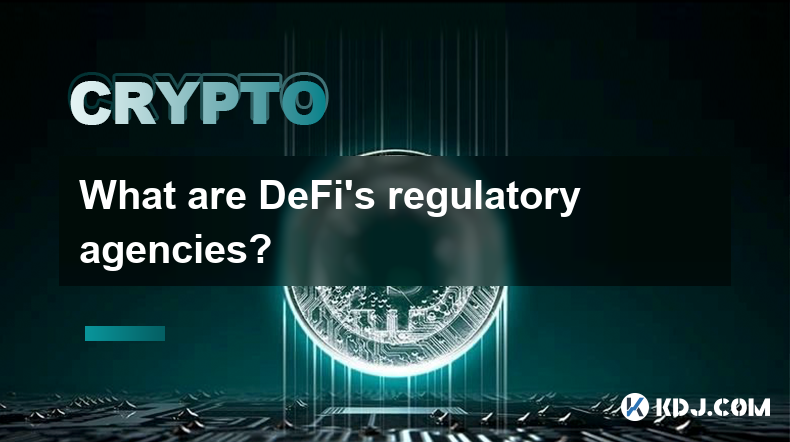
What are DeFi's regulatory agencies?
Feb 16,2025 at 05:18am
Key Points:DeFi: Definition, Architecture, and Regulatory ChallengesRole of Decentralized Autonomous Organizations (DAOs) in Self-RegulationLegal Frameworks for DeFi in the United States and European UnionInternational Cooperation and the Global DeFi Regulatory LandscapeJurisdictional Issues and Considerations for DeFi EntitiesEnforcement Actions and Li...
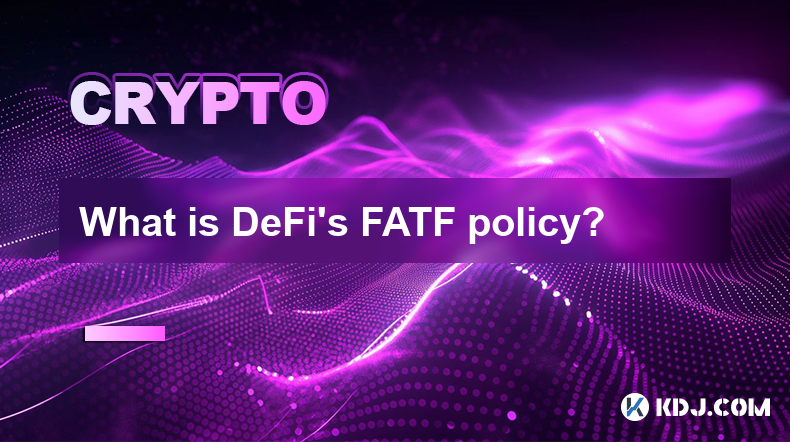
What is DeFi's FATF policy?
Feb 17,2025 at 08:06am
DeFi's FATF Policy: A Comprehensive GuideKey Points:FATF's Definition of Virtual Assets and VASPsFATF's Recommendations for DeFi PlatformsFATF's Travel Rule and its Implementation in DeFiThe Impact of FATF's Policy on DeFi AdoptionFAQs about DeFi's FATF PolicyFATF's Definition of Virtual Assets and VASPsThe Financial Action Task Force (FATF) is an inter...
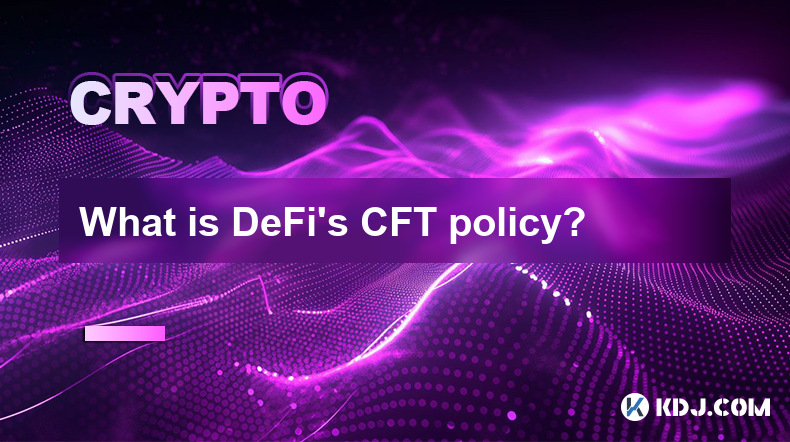
What is DeFi's CFT policy?
Feb 16,2025 at 11:54am
Key Points:Understanding CFT and its Significance in DeFiRegulatory Framework and KYC in DeFiImplementing AML/CFT Measures in DeFiProtocolsRole of Smart Contracts and Blockchain AnalysisChallenges and Future Developments in DeFi's CFT PolicyUnderstanding CFT and its Significance in DeFiCounter-Financing of Terrorism (CFT) is a crucial aspect of the cryp...
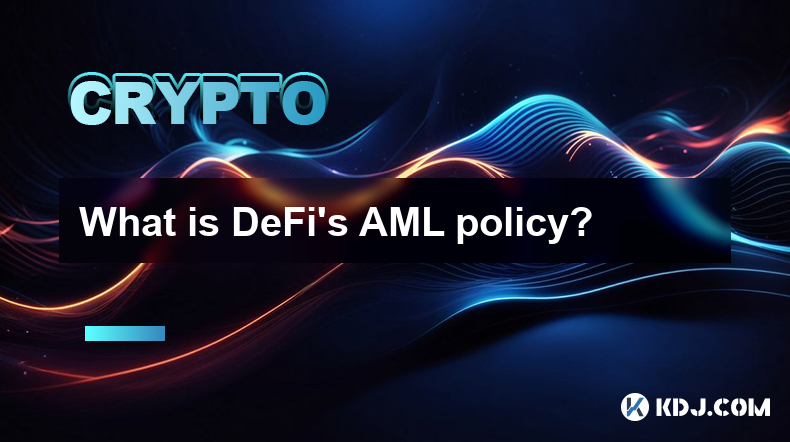
What is DeFi's AML policy?
Feb 15,2025 at 07:48pm
DeFi's AML Policy: Enhancing Compliance in the Crypto EcosystemKey Points:Understanding the Need for AML/CFT Compliance in DeFiChallenges and Limitations of DeFi AML PoliciesDecentralized Identity and Verification SolutionsSmart Contract Optimization for AML EnforcementCollaboration with Regulators and Law EnforcementUnderstanding the Need for AML/CFT C...
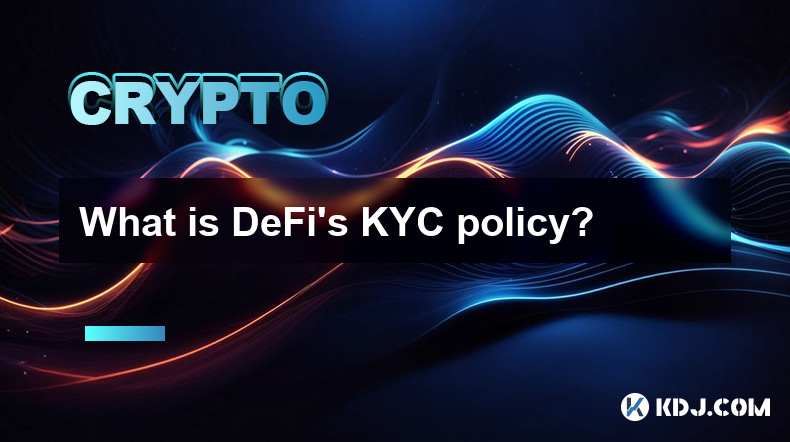
What is DeFi's KYC policy?
Feb 16,2025 at 03:51pm
Key Points:Understanding Decentralized Finance (DeFi)KYC Verification in DeFiBenefits and Drawbacks of KYC in DeFiNotable KYC-Compliant DeFi ProjectsTrends and Future of KYC in DeFiWhat is DeFi's KYC Policy?Decentralized Finance (DeFi) refers to a transformative financial ecosystem that operates on decentralized blockchain networks. Unlike traditional f...
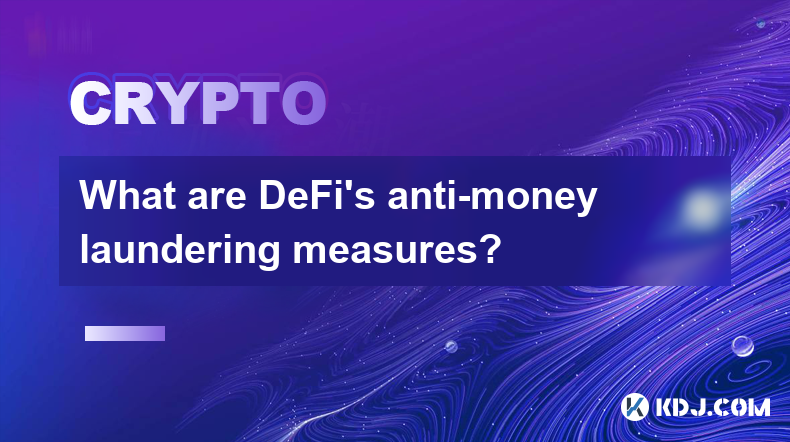
What are DeFi's anti-money laundering measures?
Feb 17,2025 at 07:19pm
Understanding DeFi's Anti-Money Laundering MeasuresKey Points:DeFi platforms utilize decentralized and pseudonymized transactions, posing unique challenges for AML compliance.Regulatory bodies are stepping up efforts to enforce AML regulations within the DeFi space.Various approaches and technologies are employed to combat money laundering in DeFi, incl...

What are DeFi's regulatory agencies?
Feb 16,2025 at 05:18am
Key Points:DeFi: Definition, Architecture, and Regulatory ChallengesRole of Decentralized Autonomous Organizations (DAOs) in Self-RegulationLegal Frameworks for DeFi in the United States and European UnionInternational Cooperation and the Global DeFi Regulatory LandscapeJurisdictional Issues and Considerations for DeFi EntitiesEnforcement Actions and Li...

What is DeFi's FATF policy?
Feb 17,2025 at 08:06am
DeFi's FATF Policy: A Comprehensive GuideKey Points:FATF's Definition of Virtual Assets and VASPsFATF's Recommendations for DeFi PlatformsFATF's Travel Rule and its Implementation in DeFiThe Impact of FATF's Policy on DeFi AdoptionFAQs about DeFi's FATF PolicyFATF's Definition of Virtual Assets and VASPsThe Financial Action Task Force (FATF) is an inter...

What is DeFi's CFT policy?
Feb 16,2025 at 11:54am
Key Points:Understanding CFT and its Significance in DeFiRegulatory Framework and KYC in DeFiImplementing AML/CFT Measures in DeFiProtocolsRole of Smart Contracts and Blockchain AnalysisChallenges and Future Developments in DeFi's CFT PolicyUnderstanding CFT and its Significance in DeFiCounter-Financing of Terrorism (CFT) is a crucial aspect of the cryp...

What is DeFi's AML policy?
Feb 15,2025 at 07:48pm
DeFi's AML Policy: Enhancing Compliance in the Crypto EcosystemKey Points:Understanding the Need for AML/CFT Compliance in DeFiChallenges and Limitations of DeFi AML PoliciesDecentralized Identity and Verification SolutionsSmart Contract Optimization for AML EnforcementCollaboration with Regulators and Law EnforcementUnderstanding the Need for AML/CFT C...

What is DeFi's KYC policy?
Feb 16,2025 at 03:51pm
Key Points:Understanding Decentralized Finance (DeFi)KYC Verification in DeFiBenefits and Drawbacks of KYC in DeFiNotable KYC-Compliant DeFi ProjectsTrends and Future of KYC in DeFiWhat is DeFi's KYC Policy?Decentralized Finance (DeFi) refers to a transformative financial ecosystem that operates on decentralized blockchain networks. Unlike traditional f...

What are DeFi's anti-money laundering measures?
Feb 17,2025 at 07:19pm
Understanding DeFi's Anti-Money Laundering MeasuresKey Points:DeFi platforms utilize decentralized and pseudonymized transactions, posing unique challenges for AML compliance.Regulatory bodies are stepping up efforts to enforce AML regulations within the DeFi space.Various approaches and technologies are employed to combat money laundering in DeFi, incl...
See all articles










































































